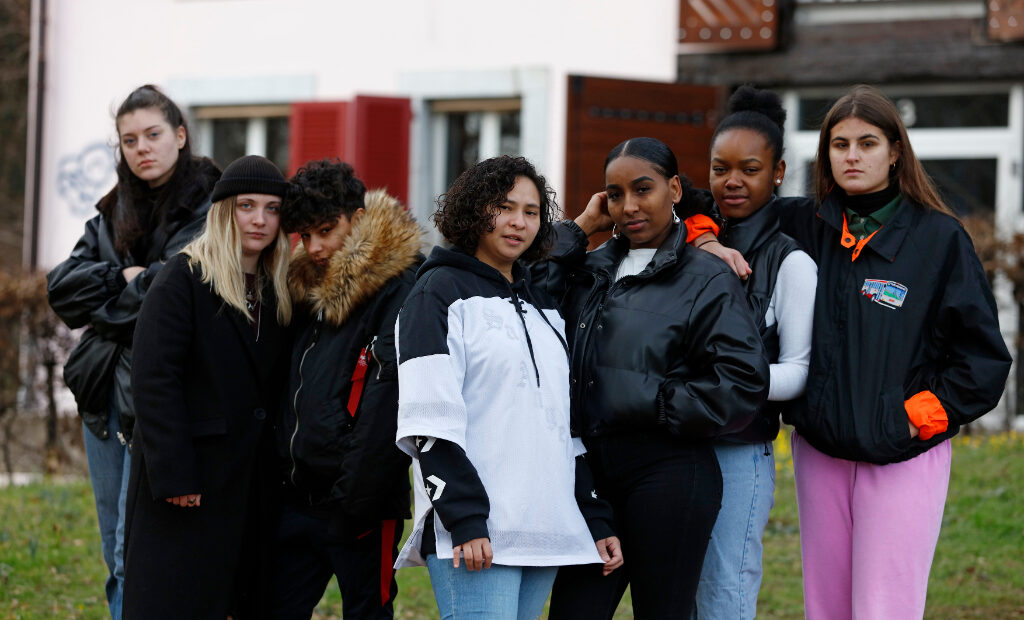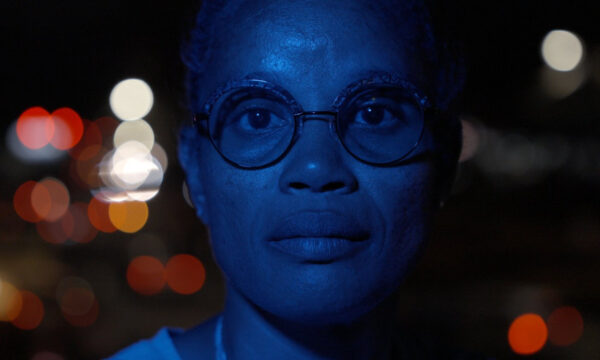La Mif

This excellent, if dramatically overburdened realist drama has the quality of texture: the lives of seven girls in social care are rendered by writer-director Fred Baillif in immediate, empathetic images. What elevates the filmmaking is the persuasive assembly of performances, a product of apparent collaboration between the crew and the young actors. In that sense, it echoes the labour process behind Sarah Gavron’s Rocks, which drew a fair amount of critical acclaim last year. This is a better film, on balance, with more thought given to its text, presentation and style.
Most chapters, delineated by character names and bridged by Bach’s overtures, focus on one of the resident minors, although incidents throughout draw together the trials of both the carers and the cared-for. There are plenty of juvenile quarrels simmering just below cacophony, as the inhabitants of the halfway house find it difficult to reconcile their pasts with the arbitrary nature of their new confinement. The collective coming-of-age consists of curfews and belated sympathy, a modicum of order from the chaos many have escaped. Negligent and abusive parents remain just out of view, a present threat or traumatic memory.
The early years of sex and romance are authentically discussed, often dependent on the relative age difference between the participants. Dialogue between the cast members is usually expressive and nonchalant, a convincing approach that speaks to the complexity of incipient relationships. Lora (Claudia Grob), the social worker upon which the narrative rests, anchors the experience of the group, holding fraught wisdom in the contours of her face. But the palpable vulnerability of all involved isn’t exploited by the screenplay, even if the sense of climax and (non-)resolution risks being overwrought.
Generally speaking, the interpersonal dynamics are depicted as matter of fact, and there’s little that’s pointedly cathartic or melodramatic. For instance, one of the girls, Novinha (Kassia Da Costa), visits her estranged mother, who quietly dismisses her appearance and leaves. In this untethered state of day-to-day survival, the film retains the staff perspective, which must straddle the line between supplying child protection and autonomy. The viewer, then, requires the precinct of the home to recall that these are fundamentally children. In turn, revelations as to why each of the girls were put into care are provocative and affecting, because their ability to recite and comprehend private tragedies appears essential to their continued existence.
Joseph Owen
La Mif does not have a UK release date yet.
Read more reviews and interviews from our London Film Festival 2021 coverage here.
For further information about the festival visit the official BFI website here.
Watch the trailer for La Mif here:

























Facebook
Twitter
Instagram
YouTube
RSS